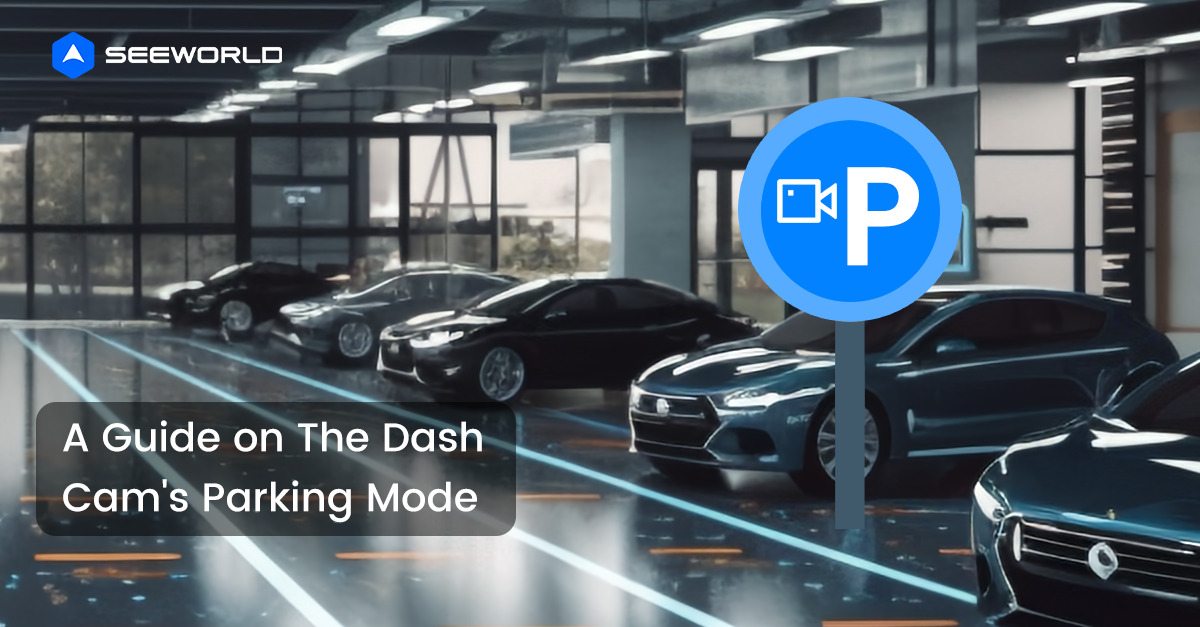GPS, or Global Positioning System, is a satellite-based navigation system that provides location and time information under all weather conditions, anywhere on or near the Earth.
It’s maintained by the United States government and is freely accessible to anyone with a GPS receiver.
GPS Tracking Basic
GPS tracking is a technology that utilizes the Global Positioning System to determine the precise location of a vehicle, person, or other asset to which it is attached and to record the position of the asset at regular intervals.
Vehicle GPS tracking offers numerous benefits, including enhanced security, improved fleet management, reduced operational costs, and real-time location tracking, which are vital for personal safety and efficient business operations.
GPS tracking works by using a satellite network that sends precise signals to a GPS receiver installed in the tracking device.
These satellites transmit signals which are received by GPS receivers, such as those in smartphones and navigation devices.
By calculating the time it takes for the signals from multiple satellites to reach the receiver, the device can determine its exact location.
This process, known as trilateration, involves measuring the distance to at least four satellites to pinpoint the receiver’s position in three dimensions: latitude, longitude, and altitude.
The system works in all weather conditions, anywhere in the world, 24 hours a day, and is fundamental for a wide range of applications, from personal navigation to complex scientific research.
- Satellites in Space: The system consists of a constellation of at least 24 satellites orbiting the Earth.
- Signals to Receivers: These satellites transmit signals that GPS receivers, such as those in smartphones or navigation devices in cars, use to determine the receiver’s location, speed, and time.
- Trilateration: By receiving signals from multiple satellites, a GPS receiver can pinpoint its exact location through a process called trilateration.
Learn more about how GPS tracking works.
GPS Tracking Benefits
GPS tracking technology has revolutionized the way we monitor and manage both personal and commercial assets. Its wide range of benefits spans various aspects, from improving safety to enhancing operational efficiency.
GPS tracking systems enable selecting optimal routes, reducing fuel consumption, and cutting down unnecessary overtime costs.
They also save time by helping avoid traffic congestion, reduce vehicle downtime to boost productivity and optimize resources by providing real-time data on fuel usage and driver behavior.
Insurance costs can be lowered as vehicles equipped with GPS trackers often qualify for premium discounts. GPS tracking improves vehicle utilization, minimizes idle time, and reduces fuel consumption.
Moreover, GPS tracking enhances customer satisfaction through timely and predictable service.
It assists in the effective management of field staff and drivers by analyzing data for informed decision-making.
Financial management becomes more streamlined as GPS data aids in route analysis and budget allocation.
Smart route planning, facilitated by GPS tracking, not only saves time and money but also increases the number of daily trips, thereby boosting business. It also enables precise asset tracking, aiding in the quick recovery of lost or stolen vehicles.
RFID & GPS Tracking
While GPS tracking provides accurate location data over vast distances using satellite technology, RFID excels in immediate, close-range identification and tracking, often in controlled environments like warehouses or retail spaces. Each technology has its unique advantages, making them suitable for different applications. GPS is more appropriate for tracking over long distances or in open areas, while RFID is ideal for quick, efficient tracking and identification of items in close proximity.
GPS Tracking Device
A GPS tracking device is a compact, innovative tool that utilizes the Global Positioning System to determine and transmit the precise location of vehicles, individuals, or other assets.
These real-time tracking devices capture data from a network of satellites and provide real-time location information, which is indispensable for various applications like fleet management, personal safety, and asset tracking.
With features such as route history, speed monitoring, and geofencing, GPS trackers have become essential in modern logistics, security, and personal convenience, offering a blend of reliability, accuracy, and ease of use.
GPS trackers come in various types, each designed to suit specific tracking needs.
Plug-in (OBD) GPS trackers connect directly to a vehicle’s On-Board Diagnostics port, offering an easy installation process and providing detailed data on vehicle performance alongside location tracking.
Wireless GPS trackers stand out for their portability and ease of installation, making them an ideal choice for short-term tracking needs or in scenarios where a permanent installation is not feasible.
They run on batteries, offering the flexibility to be placed or moved as needed, but this also means they require regular charging or battery replacements.
On the other hand, hardwired GPS trackers are integrated directly into a vehicle’s electrical system, offering a more permanent and tamper-proof tracking solution.
They are constantly powered by the vehicle, ensuring uninterrupted tracking, and are typically more reliable over the long term.
Each type presents unique advantages, from ease of installation and detailed data collection to enhanced security and portability, catering to a wide range of tracking applications.
GPS Tracking Solution
A GPS tracking solution offers a dynamic and versatile approach to location-based monitoring, providing essential data and insights for a wide range of applications, from enhancing business operations to ensuring personal safety.
In the context of fleet management, a GPS tracking solution provides real-time data on vehicle locations, routes, and travel history.
This information is crucial for optimizing routes, reducing fuel costs, and improving delivery times.
It also offers valuable insights into driver behavior, allowing for enhanced safety measures and more efficient fleet management.
For personal use, GPS tracking solutions offer peace of mind by enabling users to keep track of family members, particularly children and elderly relatives, for safety purposes.
They are also widely used in personal vehicle tracking, helping in theft prevention, and in emergencies where location tracking is critical.
- SEEWORLD Asset Risk Management Solution
- Subtle Vehicle Surveillance with Asset Trackers
- GPS Tracking Solution for Trucks
- GPS Tracking Solution for Transportation and Logistics
- GPS Tracking Solution for Car Rental
- GPS Tracking Solution for Auto Finance
- Pet Tracking Solution
GPS Tracking System
A GPS tracking system is a comprehensive solution that utilizes the Global positioning system to ascertain and record the location of a vehicle, person, or other asset.
This system involves a network of satellites that transmit precise microwave signals, which are then received by GPS devices. The basic functionality of a GPS tracking system lies in its ability to calculate the exact location, speed, and time by analyzing these signals.
At the heart of a GPS tracking system is the GPS tracker, a device that receives signals from GPS satellites and calculates the geographical location of the tracked object.
The data collected by the tracker is then transmitted to a central server. This transmission can occur via different technologies such as cellular networks, satellite communications, or even radio frequencies in some cases.
The central aspect that makes a GPS tracking system versatile and powerful is its software component. This software interprets the data received from the tracker, providing users with actionable insights.
Users can access this information through specialized applications or web-based platforms, allowing them to monitor the location and movement of their assets in real time.
This functionality is pivotal in a variety of applications, from personal vehicle tracking for security purposes to complex fleet management in businesses.
GPS tracking systems are equipped with various features such as geofencing, which sends alerts if the tracker enters or exits a predefined area, and route history, which shows the paths taken by the vehicle or asset.
Advanced systems can also provide detailed reports on vehicle behavior, including speed, idling time, and fuel consumption, which are crucial for efficient fleet management.
GPS Manufacturers & Suppliers
GPS Manufacturers are companies that specialize in the production of GPS-tracking devices.
These entities are responsible for the research, development, and manufacturing of GPS technologies. They focus on creating devices that accurately and reliably provide location data.
These manufacturers are often at the forefront of technological advancements in GPS technology, striving to improve aspects like signal accuracy, battery life, and integration with other technologies.
Original Equipment Manufacturers (OEM) in the context of GPS tracking, refer to companies that produce parts or equipment that may be marketed by another manufacturer.
In the GPS tracking industry, an OEM might produce a specific component, like a GPS module, that is then integrated into a larger system by another company.
These components are essential in a wide range of products, from vehicle navigation systems to complex asset-tracking solutions.
Original Design Manufacturers (ODM), on the other hand, are companies that design and manufacture a product as specified and eventually rebrand it by another firm for sale.
In the GPS tracking industry, ODMs offer a significant advantage to companies looking to market GPS devices under their brand without incurring the high costs and time associated with in-house product development.
ODMs not only manufacture these products but also handle the design and research, often offering a degree of customization to the reselling company.
This allows for a wide variety of GPS tracking products to be available in the market, each tailored to the specific needs of different customer segments.
GPS Tracker Removal
Removing a GPS tracking device from a vehicle or asset is a task that might be necessary for various reasons, whether it’s due to privacy concerns, the end of a lease agreement, or simply because the device is no longer needed. The process of removing a GPS tracker varies based on its type and how it’s installed.
Common Problems with GPS Tracking
While GPS tracking is a cornerstone of modern navigation and location services, it faces several challenges that can impact its effectiveness and reliability. Addressing these challenges is essential to harness the full potential of GPS technology.
While GPS trackers do draw power from the vehicle’s battery, the drain is typically negligible and should not cause any significant issues with normal vehicle use.



